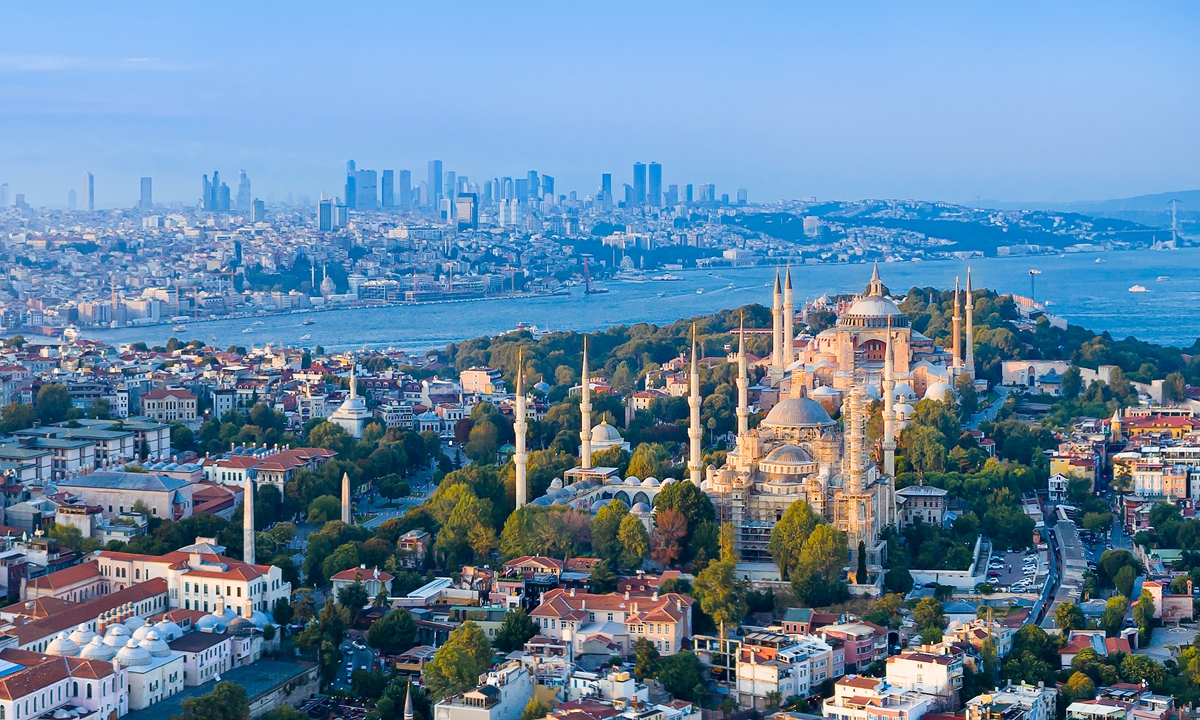
Istanbul, Turkey Photo: VCG
Editor's Note:
The China-Turkey strategic cooperative relationship has witnessed a sound momentum of development under the strategic guidance of the two heads of state. As a major developing country and member of the Global South, Turkey is now actively applying for a BRICS membership. What motivates Turkey to apply for the BRICS membership and how does it view its relations with the EU? What kind of cooperation does Turkey want to conduct with China? Global Times reporter Xie Wenting (GT) interviewed Turkish Ambassador to China Dr İsmail Hakkı Musa (Musa) on these topics as well as his opinions on the "China's overcapacity" and "de-risking" rhetoric.
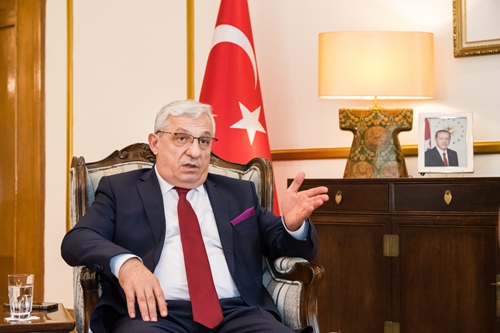
Turkish Ambassador to China Dr İsmail Hakkı Musa Photo: Chen Tao/GT
GT: How would you describe the current state of bilateral relations between Turkey and China? What role do relations with China play in Turkey's foreign policy?
Musa:This year we will celebrate the 53rd anniversary of the establishment of diplomatic relations between Turkey and China. Our bilateral relations were elevated to the level of strategic cooperative relationship in 2010.
In recent years there has been high momentum in the bilateral relations between our countries. In 2024, the number of mutual high-level visits increased and we are working on activating a number of additional bilateral cooperation mechanisms this year.
Under the political will and guidance of our leaders, our bilateral relations are developing in all areas, such as trade and investment, renewable energy, nuclear energy, electrical vehicles, technology exchange, culture, tourism, and education.
There is a huge potential for further cooperation at both the bilateral and multilateral levels. In today's world, Turkey and China hold a similar stance in many international emergency situations. Turkey and China are two countries who have the capacity to promote peace and stability both in their respective region and around the world. This gives us the opportunity to work in collaboration both on regional and global matters.
In conclusion, I can say that day by day we are elevating Turkey-China relations to new heights.
GT: Turkey is currently applying for a BRICS membership. What role does Turkey hope to play within the BRICS?
Musa:Since its foundation in 2006 and with the recent memberships of Saudi Arabia, Egypt, the United Arab Emirates, Iran and Ethiopia, BRICS has evolved into a greater platform for dialogue and economic cooperation.
Our talks with BRICS member countries are ongoing. Turkey values its cooperation with BRICS countries and sees the organization as an alternative for developing economic cooperation. We seek to defend our interests and closely watch alternative economic platforms. Turkey is already a member of the Organization of Black Sea Economic Cooperation, D-8 and Economic Cooperation Organization and is in close dialogue with the Shanghai Cooperation Organisation.
As such, we also see BRICS primarily as an economic platform. This is why we try to maintain good relations with BRICS member countries. In fact, Turkey already maintains good bilateral economic relations with BRICS members and China and Russia are among Turkey's most important trade partners.
We see all these platforms not as an alternative to one another, but rather complementary to each other. We believe that diversity in BRICS members can be an important tool for increasing global and regional development and stability.
Turkey is an influential country in global and regional politics and is also one of the biggest and most vibrant economies in the world. We believe that Turkey's participation in any such platform will contribute to dialogue and economic cooperation serving global efforts for peace, stability and development. Turkey's potential inclusion could enhance BRICS' global influence and boost trade and investment opportunities within the BRICS framework.
GT: Some Western media outlets have questioned Turkey's decision to prioritize BRICS over the EU. What is your response to this?
Musa:We are not establishing a kind of precedence between the two organizations. In fact, they are very different by nature.
For Turkey, an EU membership remains a strategic priority. Therefore, Turkey's possible membership to the BRICS would not alter its vision regarding the EU. But we are realistic. We are carefully considering and observing global events and developments. We have been waiting for more than five decades. And our European partners are not ready to see us as a full member.
I don't know if this time things may change. If we look at it from a very realistic point of view, this will not be the case in a foreseeable future.
I want to expand a little bit more on the very nature of these two organizations. The EU is, geographically speaking, a limited union on the European continent. The nature of the members is very well known. They belong to the same cultural world. Maybe this is the reason why Turkey is not yet a member of this union.
From a legal standpoint, the EU is, as I qualify it, a post-national gathering community. This is not an international organization and is far from being a confederation. BRICS is instead an international organization.
BRICS embraces many different cultures. The organization now has China, Russia, India, Saudi Arabia, Iran, Egypt, and etc. Bearing all this in mind and given its current economic and geopolitical role and position, it's just natural that Turkey is interested in joining BRICS.
I'm sure that within BRICS, what is put forward is the economic nature for cooperation. Turkey aims to broaden its regional and global economic interactions, access new markets and enhance trade relations with major emerging economies. Additionally, Turkey bids for a more stable and inclusive international order.
We submitted our request for membership at the beginning of this year. The term presidency is assumed by Russia. So, the letter signed by our foreign minister was sent to his Russian counterpart.
GT: In what areas does Turkey hope to further enhance cooperation with China under the Belt and Road Initiative (BRI)?
Musa:As two great civilizations, Turkey and China have developed deep-rooted relations that go back centuries. Commercial and economic relations are at the heart of our exchanges.
Turkey supported the BRI from the very beginning. Indeed, President Erdogan attended the first Belt and Road forum in 2017 and many cooperation agreements were signed on this occasion.
This initiative strives to build stronger connectivity enabling economic integration and greater cooperation. Under the BRI we wish to establish a close and fruitful collaboration with China in a variety of areas.
China is currently our largest trading partner in Asia and the third largest in the world. With better connectivity under the BRI, we hope to increase our bilateral trade with China in a balanced manner. Within the scope of the BRI, energy, transportation infrastructure, and nuclear power emerge are potential collaboration areas. The recently constructed Sinovac vaccine center in Ankara is also an important investment by China which further expands our cooperation in the health sector.
We expect more Chinese companies to invest in Turkey, especially in strategic sectors such as solar and nuclear energy, high-tech infrastructure, EVs and AI.
Cultural exchange is another area in which the two countries can enhance their cooperation under the BRI. We hope that with more cultural events being organized in Turkey and China, our people can gain a much better understanding of each other and see many similarities of our cultures and traditions.
GT: How will the Middle Corridor Initiative be connected with the BRI?
Musa:Enabling greater and wider connectivity is at the core of the BRI. Turkey also attaches paramount importance to connectivity. We believe that increased connectivity and economic cooperation are significant for ensuring peace, stability and sustainable development. With this mindset, Turkey put forth the Middle Corridor Initiative.
The Middle Corridor starts from Turkey in the West, and after crossing the Caucasus, the Caspian Sea and the Central Asian steppe, reaches China. This initiative is in natural harmony with the BRI. Together with the BRI, the Middle Corridor provides China and Central Asian countries uninterrupted, quick and increased access to the Black Sea and Mediterranean basins, as well as to Europe, Middle East and Africa. Additionally, it offers 2,000-kilometer shorter land route between Europe and Asia. On sea routes, it offers 15 days shorter time for transportation.
Most recently, on June 28, another freight train with 110 containers carrying household products departed from Jiangsu and through the Middle Corridor it will reach Europe.
GT: Some Western countries have hyped up the so-called "China's overcapacity" and the "decoupling from China" rhetoric. What's your take on it?
Musa:This is an important question. What we have been witnessing for several years, and especially in recent months, some circles created new terminology: overcapacity, decoupling, and de-risking.
If they begin to accuse you by saying that you have an overcapacity, they should reconsider their own capacities. This means that they have an under-capacity when it comes to competing with you. The overcapacity rhetoric is used to hide the difficulties of some countries. Those who cannot compete with China are raising the issue of overcapacity.
Second, when it comes to these two other notions that were invented during the recent years - "decoupling" and "de-risking", I have been very outspoken about them. These two notions, I think, were invented to some extent to contain China by economic and trade means. This is not a sustainable stance. Decoupling for what purpose? De-risking for what reason? This is not realistic. This is not compatible with the reality of the economic and trade cooperation relationship between China and other countries.
And our country, Turkey, doesn't share these kind of rhetoric. We are very clear on that. We maintain that the development of China is beneficial for everybody. We do not share nor support this kind of unrealistic concepts as they do not relate to the reality of current affairs.




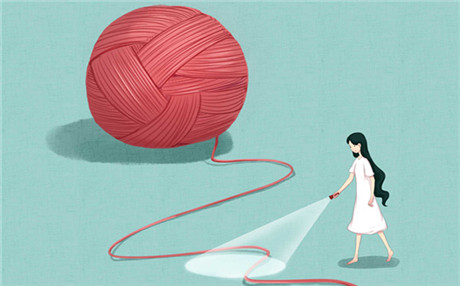
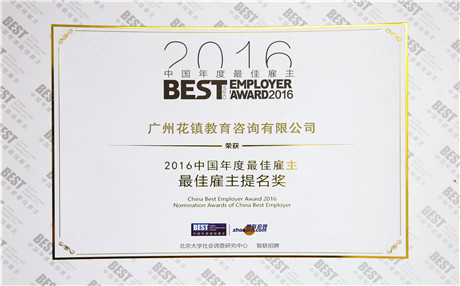




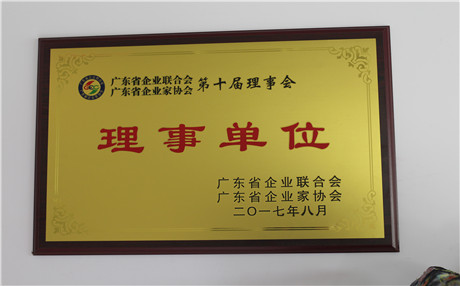



评论